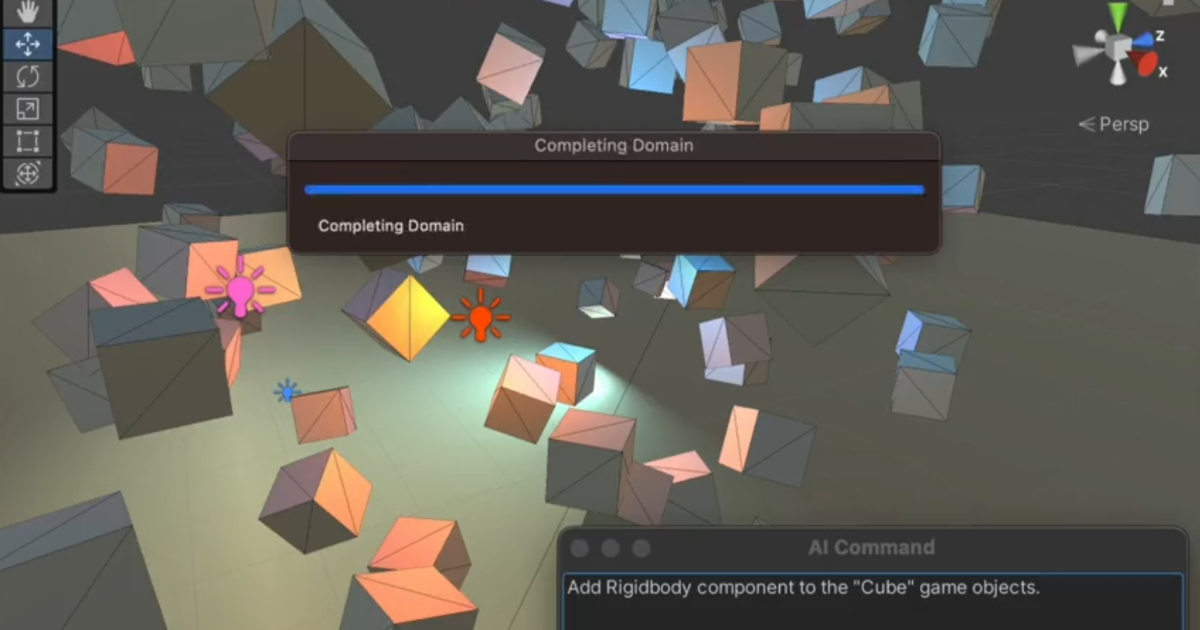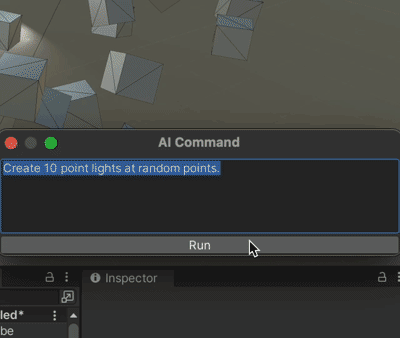In the era of ever-evolving language models and chatbots, many are wondering how AI technologies will influence various areas, including game development. Here is an example of a possible use case for ChatGPT in Unity.

On January 19, Unity engineer Keijiro Takahashi shared a video of his ChatGPT plugin for Unity Editor.
As shown in the clip, a user can type natural language prompts in the engine’s editor to generate objects, move them, create point lights, increase their range or intensity, and run the generated scene.

The AICommand project is available on GitHub. To use it, you should have Unity 2022.2 or later and generate a special API key.
Although the plugin may look impressive, it is only a proof-of-concept integration of ChatGPT into Unity Editor. It can’t be considered a 100% practical solution, so game developers and designers shouldn’t expect it to do all the work for them or help with some complex tasks.
I created a proof-of-concept integration of ChatGPT into Unity Editor. You can edit your Unity projects using natural language prompts. https://t.co/suLrE0tEEBpic.twitter.com/CnaD5zp744
— Keijiro Takahashi (@_kzr) March 19, 2023
“It works nicely in some cases and fails very poorly in others. I got several ideas from those successes and failures, which is this project’s main aim,” Takahashi explained, adding that in many cases, ChatGPT “fails to implement your command correctly.”
This proof-of-concept project is one of many ways developers are testing new grounds and trying to find possible uses for AI technologies. We recently detailed the development of Tales of Syn, an upcoming RPG that utilizes Stable Diffusion and ChatGPT to create assets and dialogues. Last month, Chinese gaming giant NetEase also announced that it will integrate ChatGPT into Justice Online Mobile for NPC interactions.
Many game studios already use different models to optimize the production process and help devs with routine tasks. For example, Gearbox creates custom AI architectures that save Borderlands artists “days of time and help prevent crunch.”
Developers also use Midjourney and Stable Diffusion to generate art and other assets. Here you can read how a mobile studio saved $70,000 in expenses by using AI technologies.
